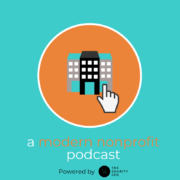Understanding the Job of a Nonprofit Operations Manager
No time to read this article now? Download it for later.
There are more than 1.54 million nonprofits globally. To ensure that a nonprofit runs efficiently, several people work behind the scenes to make things much easier, and one of those people is the operations manager.
The operations manager might be the secret weapon of the most successful nonprofits we know. By taking charge of getting things done, an operations manager helps executive directors focus their energy on the strategic big-picture that will move their mission forward.
If you’re looking to enter the world of nonprofit organizations with a background in operations management, you might be wondering how your skills can help you. Or, if you’re a nonprofit founder or an executive director, you might be wondering how an operations manager can help make your organization ruthlessly efficient and highly effective.
Read on now to find out what the job description of a nonprofit operations manager might look like.
What does an operations manager do?
A nonprofit operations manager, or director of operations for a nonprofit, is responsible for the day-to-day operations of the organization.
They oversee the administrative staff and make sure that the office runs smoothly. They also develop and implement operational procedures and systems and manage budgets and financial reports. In short, they ensure that the nonprofit runs like a well-oiled machine!
Now, if that sounds like they do a bit of everything, it’s because that’s true!
An operations manager, by definition, is a manager. They don’t necessarily need to be an expert at any one thing. Still, they need to be able to be proficient enough at many things to manage a highly productive team to get results for their organization.
Here’s how Krysta Grangeno described her day-to-day tasks in operations for a nonprofit organization:
Who reports to the operations manager?
And who do they report to?
It depends on the organization, but generally, any department is responsible for the day-to-day operations of the entity. That may include
- Finance Department
- Fundraising Department
- Program directors
- Human Resources
- Information Technology
- And more!
You can see that, depending on the size and structure of your organization, the ops manager will have to oversee a large number of departments.
In turn, your operations manager will either report to the Director of Operations, the Chief Operating Officer (COO), or directly to the CEO or Executive Director. They may also have some direct interaction with the Board of Directors, although the board isn’t technically their supervisor.
What are the job responsibilities of a nonprofit operations manager?
As mentioned above, their primary role is to supervise and organize the efforts of the departments under their responsibility. Here’s a breakdown of what duties a nonprofit operations manager will be expected to handle:
Ensure the Office Runs Smoothly
The administrative staff is responsible for keeping the office organized and running smoothly on a day-to-day basis. The operations manager will make sure that they have everything they need to do their job effectively and that they are meeting all deadlines.
An operations manager must be exceptionally well organized, as they’ll be responsible for creating systems and processes that ensure every department is meeting its expectations. Often, they’ll also need to be aware of all legal or reporting requirements that the organization may have in executing their programs.
Implement Budgets and Oversee Financial Strategy
The operations manager will be responsible for spearheading the budgeting process for the organization and ensuring that the accounting department delivers timely and accurate financial statements for the board of directors or other stakeholders. You’ll also need to be intimately familiar with these statements as well and review them proactively to identify potential issues before they become problems.
As the operations manager, part of your role is to ensure that the financial department runs effectively. This includes ensuring that checks and balances are in place and that employees in the financial department are adequately trained to do their jobs.
The operations manager must also be acutely in-tune with the organization’s budget. Because their role is so wide-reaching, they need to be aware of how shortfalls in one area (like fundraising) may impact the ability to execute in others (like executing programs or meeting payroll).
That doesn’t mean that the operations manager needs to be an accountant. Generally, they’ll oversee the accounting team or work as a liaison with an outsourced accounting firm. But ultimately, they are responsible for ensuring that the accounting work is done correctly and on time.
Supervise Human Resources
Ideally, the operations manager’s role in human resources is limited to supervision, but that’s not always the case. In some smaller nonprofits, HR may get put completely onto the ops manager’s plate, but we’d recommend against it.
Human resources is a specialized field that requires experience and specific knowledge. You need to comply with employment law, collect the correct information, withhold taxes appropriately, and onboard and train new employees.
A knowledgeable HR professional should establish the policies and procedures for the human resources department, but many nonprofits can’t afford a full-time HR coordinator. That’s why many nonprofits choose to outsource their HR to external firms as well.
Even if you’re working with an external firm, the operations manager will probably need to be involved in many day-to-day items related to HR—like searching for employees to hire, interviewing, training, counseling, and terminating employees.
Manage Technology Integration
Technology is a massive part of the work that nonprofits do. Almost every person in your organization depends on technology. And the networks and systems that keep those people aligned take organization, security, and maintenance.
Depending on your mission, you may even be dealing with highly sensitive personal information that you have a legal responsibility to protect, even in digital form. As the operations manager, you’ve got to make sure the appropriate technology systems and controls are implemented throughout the business.
Not utilizing the proper systems could mean the loss of crucial data needed in the future. Or it could mean a crumbling IT infrastructure that can’t support the business model being implemented.
Nonprofits often don’t need, or can’t afford, an internal IT department. And relying on someone’s husband or nephew to fix problems isn’t an acceptable solution. Instead, many organizations outsource their IT department to a service provider. In this case, it’s the operations manager’s job to liaison with the IT provider to ensure the office gets the support it requires.
Ensure Compliance and Organization
Records need to be kept in order within any business. There are several reasons for this, but compliance is an important one for many nonprofits.
Your organization needs to comply with accounting regulations, legal restrictions, employment rules, and other industry-specific regulations. And the operations manager is ultimately responsible for ensuring that the company is prepared to prove its compliance when audited.
Not only does record organization help when something needs to be located, but it also speeds up business efficiency. Instead of wasting time hunting for something, it will be easy to access the record database. All you’ve got to do is type in some information and locate the data needed.
How to evaluate performance and further development
Whether you’re building the leadership team to include an operations roles, or you’re currently in an operational leadership role — it’s important to regularly evaluate performance as well as work on developing to further improve your work.
If you’re evaluating your ideal candidate, after they’ve been in the position for a certain period (a year, for example), it’s important to compare their achievements to the job description. For self-evaluations, read resources (like this one) to find usable knowledge to help improve your performance.
Key areas to concentrate your efforts include:
- Purposeful communication: In operations, too much communication is nearly as problematic as not enough. What you say, how you say it, must be as useful as possible. That’s where developing purposeful communication tactics come in handy.
- Organizational processes: As someone who ensures compliance and handles intricate areas of a nonprofit, the ability to develop processes takes precedence over nearly every other aspect of your role.
- Continuing certifications: There are a number of nonprofit certificate programs available for leadership teams. Those instructing the programs often have robust experience in the sector. Taking these programs helps you find the additional knowledge to improve your performance.
A Note on Outsourcing Professional Services:
We’ve mentioned outsourcing a few times here, related explicitly to bookkeeping/accounting, human resources, and information technology. That’s because this is an emerging trend we see gaining steam in the industry.
Traditionally, many nonprofits had a scrappy, do-it-all mentality when it came to these areas. So, an operations manager or financial director frequently ended up having responsibility for everything— from making bank deposits and firing employees to troubleshooting network issues.
But this approach causes more problems than it solves. Having trained professionals handling complex tasks that are outside their area of expertise is hugely inefficient. And it’s just asking for mistakes.
Yet most organizations can’t afford a full-time accountant, HR coordinator, and IT professional. And that’s where the operations manager comes in.
When organizations outsource these 3 functions and have the operations manager work directly with each team, they can get the full professional support of each team without paying a full-time salary. Often, these teams are more talented and efficient than an internal team member would be.
We believe this is the operational business model of the future for successful mid-sized nonprofits in the $1M to $15M/year range. If you’d like to talk to us about outsourcing your bookkeeping and accounting to The Charity CFO, send us a message to set up a free consultation.
What Qualities Make a Good Operations Manager?
Let’s turn to Krysta again, to offer a first-hand perspective on what skills an operations manager needs:
What A Nonprofit Operations Manager Does: A Recap
A nonprofit operations manager has many responsibilities, but their primary role is to coordinate all the various departments to ensure that business runs smoothly.
The operations manager will oversee the finance department, human resources, information technology, programs, fundraising, and more. And they must grasp how each department impacts the other to ensure that the entire organization runs harmoniously.
By doing their job well and assuming responsibility, they free up each department to focus on what they do best, rather than overlapping tasks or getting tied up in work that’s unrelated to their department. They also help free up the directors to focus on strategy rather than the day-to-day minutiae of each department.
No time to read this article now? Download it for later.


















